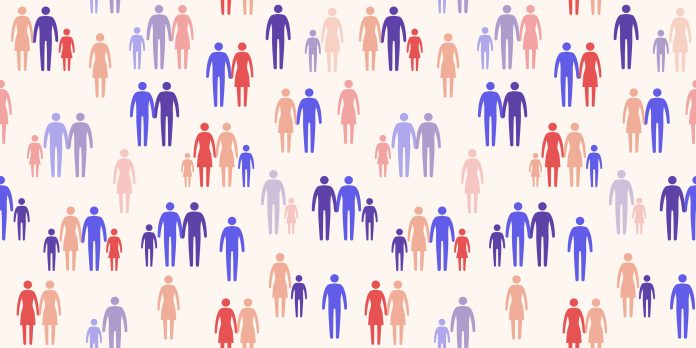
Human history is littered with dramatic changes in populations that have slashed genetic diversity, a genomic study has revealed.
More than half of the groups studied worldwide had experienced recent ‘founder events’ in which a small number of people created a new population or the original head count reduced through a bottleneck such as war, famine or disease.
Among more than 4000 ancient and contemporary genomes studied, strong founder events within the past 10,000 years were associated with geographic isolation, a hunter-gatherer lifestyle and cultures that married within their own communities.
“We were surprised to see how widespread the history of founder events is in humans, both in present-day and ancient DNA samples, suggesting that investigation of disease-causing variants will be fruitful to identify and reduce disease burden among contemporary groups,” said researchers Rémi Tournebize, a postdoctoral fellow at the Instituto Gulbenkian de Ciência in Oeiras, Portugal, and Priya Moorjani, an assistant professor at the University of California, Berkeley.
The team created a genomics analysis program called ASCEND (Allele Sharing Correlation for the Estimation of Non-equilibrium Demography) that could analyze partial genome sequences, in particular those from ancient DNA which is usually sourced from bone or teeth and is typically damaged.
ASCEND measured the degree of sharing in versions of a DNA sequence from a specific genomic location between individuals and also across populations. As genetic recombination occurs in each generation, people share these sequences less and less at a predicable rate and working backwards the time to the original founder event, in which they were identical, can be inferred.
The researchers applied ASCEND to 2310 present-day individuals from 184 groups and compared their DNA with a random set of 15 unrelated individuals.
Results showed that 61% of the populations experienced a significant recent founder event that occurred in the past 200 generations.
Populations living on islands had stronger founder events than continental groups, which the researchers suggest may be because islands are founded by few individuals or numbers are kept low due to limited resources.
Most hunter-gatherers, nomadic and indigenous groups had strong founder events, possibly linked to limitations in resources and extreme environmental pressures. And cultural practices such as marrying within communities also contributed to founder events, such as those seen in Ashkenazi Jews.
Intriguingly, 53 groups worldwide experienced more extreme founder events than Ashkenazi Jews, who have previously been well studied and have high rates of recessive diseases due to their history of founder events.
The most extreme founder event was seen in the Onge population from the Andaman Islands and was almost 10 times higher than that for Ashkenazi Jews.
Among 1947 individuals from 164 worldwide ancient populations, mostly the Americas and West Eurasia, 36% had significant founder events that occurred 200 generations before the individuals lived.
To examine their approach on another species, the researchers then applied ASCEND to 52 dog populations belonging to 40 unique breeds and two African village dog populations.
They identified founder events in all populations, with the weakest in village dogs and the strongest in Boxers. Among the breeds, the most recent founder event occurred around six generations ago in Gordon Setters and the oldest around 24 generations ago in Bulldogs.
Reporting their findings in the journal PLOS Genetics, the researchers conclude: “Future disease mapping efforts should prioritize founder populations as they offer immense potential for biological discovery and reducing disease burden through the discovery and testing of recessive disease-associated genes and pathways.”













